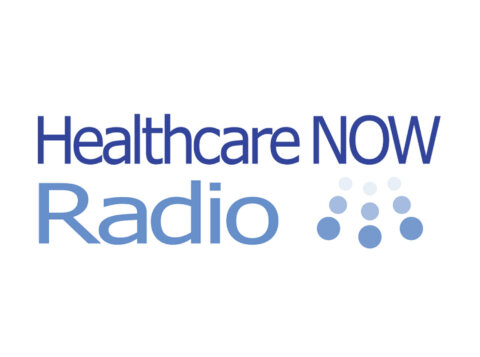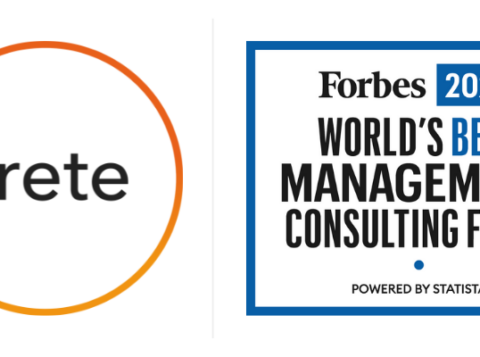Dispelling PBM Myths: Tips for Creating Pharmacy Benefit Programs That Put Members First
This is an AArete Healthcare Payer insight
Health plan executives often find themselves caught in a balancing act when it comes to delivering a valuable pharmacy benefit. On the one hand, members expect and deserve affordable, easy access to medications. On the other hand, prescription drug costs continue to rise at an unsustainable pace, forcing plans to pass some of those costs on to their members. Prescription drug spending increased by 11.4% to $449.7 billion in 2023, outpacing the 7.8% increase in 2022, according to the most recent National Health Expenditure data from the Centers for Medicare and Medicaid Services.
Finding a solution to this dilemma is difficult. Most healthcare payers rely heavily on Pharmacy Benefit Managers (PBMs) to handle several aspects of their pharmacy program. While today’s market-leading PBMs have leveraged their scale to create models that efficiently manage volume, there are growing opportunities to enhance alignment with value-based care. Increasing transparency and realigning incentives toward cost-effective, clinically appropriate alternatives can help health plans gain greater influence over drug spend and trend—ultimately supporting more sustainable, member-centered outcomes.
This dynamic is particularly relevant for regional and nonprofit health plans, which often rely on a fully outsourced pharmacy management model and may have limited internal pharmacy leadership and analytic resources. As a result, it can be challenging to pinpoint drivers of rising costs.
Still, there are meaningful opportunities for health plans to optimize PBM relationships to reduce costs and improve member outcomes. By developing a deeper understanding of the pharmacy supply chain, where money flows, and the role of PBMs—plans can start adopting strategies to improve transparency, enhance value, and better support the health of their members.
Understanding the Pharmacy Supply Chain and PBM Strategy
The pharmacy supply chain starts with the manufacturer, which sets the initial price of medications, typically selling to wholesalers. Wholesalers then apply their own markup and sell to pharmacies.
PBMs occupy a crucial role between manufacturers, wholesalers, pharmacies and healthcare payers. They build and manage pharmacy networks for health plans, which includes contracting and credentialling, ensuring compliance with electronic records, processing claims and paying pharmacies. However, the relationship becomes more complex when the PBM is affiliated with payers, owning pharmacies, third-party orginizations responsible for managing 340B programs, and PBM group purchasing organizations responsible for negotiating and administering manufacturer rebates.

PBM Group Purchasing, Rebates, and Contract Complexities
PBMs typically pay pharmacies based on the Average Wholesale Price (AWP). The AWP is considered the benchmark in the PBM industry and is a manufacturer-suggested price (“list price”) rather than an actual average of wholesale transactions. However, it doesn’t account for discounts pharmacies may receive through bulk purchasing or early payments. AWP is not regulated by the government and doesn’t represent actual market prices. It’s only a starting point for negotiations between PBMs, pharmacies, and payers.
Rebates add another layer of complexity. Manufacturers offer rebates to PBMs to incentivize the utilization of certain brand drugs, particularly specialty medications. While the majority of these rebates are passed down to health plans, a small portion stays with the PBM, and almost none of the rebates are passed on to the member.
With concerns about these practices growing, health plans might feel they have limited control over rising costs—but in fact, they have more leverage than they realize. Pharmacies, too, can benefit when they understand how to efficiently manage contracts and rebates and how PBM group purchasing agreements affect the flow of dollars.
Debunking Common PBM Myths
Before resetting their PBM relationships, health plan leaders must address several common myths that can cloud decision-making:
Myth #1: Larger PBMs offer deeper drug discounts.
While it’s true that large PBMs leverage their size to negotiate deeper pharmacy network discounts and higher rebates, their business models are not always aligned with health plans’ goals. Therefore, a larger PBM may not always be the best option for controlling costs.
Myth #2: PBMs effectively control drug costs.
PBMs negotiate discounts via rebates, but several factors undermine their effectiveness. PBM owned group purchasing organizations (GPOs) are paid by manufacturers to administer rebate programs. Their payment is based on the cost of the drugs utilized and these payments are not required to be passed on to the plan or the members. Therefore, these PBMs create formularies that promote utilization of high-cost and high-rebate drugs rather than those that are most cost-effective for the plan and its members. Moreover, rebates don’t reduce members’ out-of-pocket costs, as they are based on the AWP, which doesn’t account for rebates. In turn, members end up on high-cost drugs that continue to rise in price to maintain rebate structures.
Without unbundling pharmacy benefits and reviewing contracts more closely, many health plans risk paying more while members see little improvement.
Myth #3: Health plans need a large PBM to get maximum value.
There’s a common belief that only the “Big Three” PBMs can offer the best network and rebates. However, smaller, regional PBMs can deliver significant value, especially for plans that are regional or have members concentrated in a few states. These plans can leverage local care providers to offer a tailored network and cost-effective pricing without relying on the massive scale of large PBMs. In some cases, choosing to unbundle PBM services can unlock more meaningful cost savings.
Six Strategies to Optimize PBM Solutions and Reduce Costs
By understanding how PBMs work, health plans can effectively manage expenses and enhance the value they provide to members. Here are some actionable steps:
- 1. Seek transparency in PBM contracts
- Health plans should consider conducting a comprehensive Request for Proposal (RFP) process. Engaging with smaller and mid-tier PBMs that offer more transparency, and flexibility can provide health plans more control over formularies, benefit design and pricing models. While these PBMs may charge higher administrative fees upfront, plans can model the ROI and ultimately reduce net pharmacy costs for the plan and members.
- 2. Ensure market competitiveness
- Regularly evaluate the competitiveness of your PBM contract. Market conditions evolve, and it’s essential for health plans to keep their contracts and pricing aligned with current industry standards.
- 3. Renegotiate PBM contracts
- Health plans can remain with their current PBM and still achieve better outcomes by negotiating more transparent terms. Plans with existing PBM contracts that have been amended several times are likely to have significant leverage in these negotiations.
- 4. Focus on rigorous contract management
- Contract clarity is key to maximizing the benefits of your PBM relationship. Ensure that contract terms are well-defined, especially in areas like drug classification and rebate structures. This will help prevent ambiguity and improve pricing transparency for both health plans and pharmacies striving to efficiently manage contracts and rebates.
- 5. Move away from a rebate-centric model
- Rather than focusing on maximizing rebate revenue, health plans should shift toward achieving the lowest net costs. Most drugs within a therapeutic category offer similar clinical efficacy, so opting for cost-effective generics or biosimilars rather than those with high rebates can lead to substantial savings.
- 6. Consider unbundling PBM services
- Not all services offered by large PBMs are necessary for every health plan. For smaller or regional plans, it may be worth considering unbundling pharmacy benefits, disaggregating functions such as claims processing, rebate administration, and network management. This PBM strategy often provides more transparency and lower administrative costs.
The Value of an Unbiased Partner
Navigating the complexities of pharmacy benefit management requires expertise and impartial guidance. Health plans should seek partners who offer unbiased advice and deep real-world experience in the pharmacy benefit management space. AArete doesn’t promote any particular PBM solution. Instead, we work closely with health plans to identify the most effective strategies and solutions for their unique needs, whether that’s unbundling PBM services, renegotiating contracts, or optimizing PBM group purchasing relationships.
By working with a trusted partner, health plan leaders can build transparent, cost-effective pharmacy benefit programs that provide real value to both their organization and their members.
This is part 1 in a series on optimizing PBM programs. Read part 2.
Learn more about AArete’s Pharmacy Solutions.











































































































